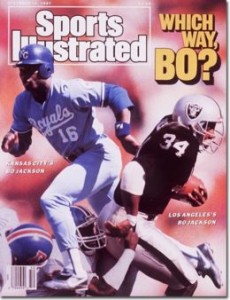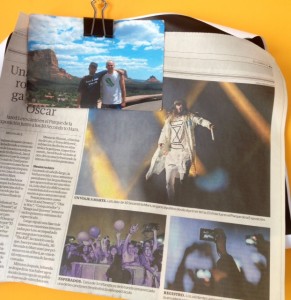I saw recently that one of my favorite business authors, Michael Lewis, was promoting the 25th anniversary of his first bestselling book, Liars Poker. In the interview with Stephen Colbert of the Colbert report, they listed off Lewis’ other 
“novel” is interesting to me. How does someone get to a level of excellent production, and then stay there? How does someone keep churning out material that people want to read? All marketing and PR efforts aside, I’m curious about the nature of an individual as it relates to the quality of their work, and in this case specifically “work” should mean the “body of work,” not just one successfully published work.
On Monday, I came across an article about the principles of Warren Buffett who, not coincidentally, has had an equal streak of success over the past 25 years in his field, and finds his place not just in the top 10% of performers, but in the top 1%. (You can start making some snide jokes about him being in the top 1% but did you know that he’s a huge philanthropist? article: “Buffett Donates $2.8 Billion, Breaks Personal Giving Record”).
So this article is in a reference to a principle that Buffett has kept central to his life, and explains how he communicated this to his personal jet pilot, Mike Flint:
“Flint confirmed that he would start working on his top 5 goals right away. And that’s when Buffett asked him about the second list, “And what about the ones you didn’t circle?”
. . . To which Buffett replied, “No. You’ve got it wrong, Mike. Everything you didn’t circle just became your Avoid-At-All-Cost list. No matter what, these things get no attention from you until you’ve succeeded with your top 5.” (source: http://jamesclear.com/buffett-focus)”
Seems pretty harsh right? Either focus on those five goals or forget about it all together. Either you’re fully focused on what you want, or you’re not. Reminds me of the quote from Andy Dufresne in Shawshank Redemption:
“Get busy living or get busy dying.”
This principle is seen in modern day sports with the disappearance of the dual-sport and three-sport athletes that once existed in history. It was not uncommon 30-40 years ago for an individual to be a star in two or three sports in high school, and possibly do two sports in college. The rare exception then were those who did it in the professional leagues, but this is almost unheard of today. It simply isn’t possible to compete at that professional level given that other athletes are wholly dedicated to a single sport, not to mention the time involved in preparing for that sport on a day to day basis and the wear and tear incurred on the body during the season.
I remember some parents of friends of mine that would shuttle their children around from practice to other practice and fill their weekends full of physical activity. Now, I think that is good for a child, and still possible for someone in recreational leagues and local community events, but the possibility from both a performance and a feasibility standpoint dramatically declines as the competition increases. We haven’t even addressed where academics fits into all of it.
So if this unadulterated focus toward a single sport might help to explain how people get to the top 10%, but how exactly do people bridge the gap between the 90% and the 10%? How do people improve year over year, stay disciplined and motivated, evade injuries and life-altering decisions, and arrive and stay at peak performance.
The answer, like many responses to great questions, is multifaceted and still mysterious, but
there have been some books that have sought to answer it. One is Outliers, by Malcom Gladwell, famous for saying that it takes about 10,000 hours to get to “expert” status, and as you have seen here on my blog, I think a better, more practical guide is the book that I’m a huge fan of: “So Good They Can’t Ignore You.” by Cal Newport.
In Newport’s book, he expands on Gladwell’s notion on “deliberate practice,” which is continually focusing on improving the weaknesses that will lead to higher probabilities of success, and how to integrate it into a daily routine. He also outlines how to keep focus, concentration and work intensity paramount in the quest for improvement in a given discipline. I have found some of his most salient advice of “No distractions, period.” to be extremely helpful when I work on translation projects or writing pieces. There simply are no workarounds to good work.
So let me turn back to Warren Buffett’s comment to his pilot Mike Flint. I think this is an example of the “No distractions, period.” lesson in a case study from real life. I think we all get that and we all nod our heads in agreement, we’ll say, “That’s good and true about making the top 5 goals a reality, I’m totally in favor of that.” But if you read in the article, Warren Buffett shows a bit of his discipline fanatic side when he responds to Flint. He says it’s not just the principle that’s important, it’s the decision, or rather, the emotional decision that counts.
It’s not enough to agree internally, or even say you agree verbally, but to really make any sort of change you must be willing to cut out what stands in conflict to those goals. That is a far more difficult decision to make than whether to open your mouth and utter the words, “Ok, got it. Just five goals. Totally understood.” Emotional decisions are tough, they are probably tougher to make because we’re not facing visible, tangible choices; we’re trying to choose between things we care bout immensely, things that are related to our life goals, our family, our friends, those we love. Those are the things that pull on the heart strings, the things that keep us awake at night because of adult-laden regret or child-like excitement.
I think the point of Buffett’s comment and the gist of this blog post is that what separates the top 10% from the rest, is not simply their discipline to stick to a schedule, but their tenacity to say no to a bunch of good things to focus on a great thing, a thing that makes a life instead of one that fills a day. That is hard. Actually, it’s really hard. There’s no way around it. It’s something I’ve come to realize over the past few years, that the difference between the 10% and the rest, is not just 90 points on a standard scale, it’s 90 marks on an exponential swing.
It isn’t a ladder at all, it’s a mountain that has to be climbed. If you want to make it to the summit you’ve got to pack your bag with only what’s necessary, and nothing more. Because what you put in your pack will either slow you down or help you get to the top.





